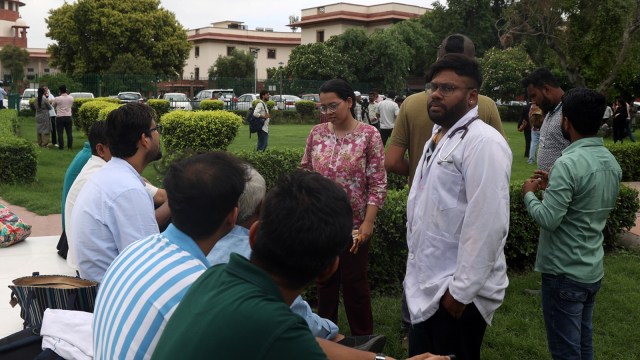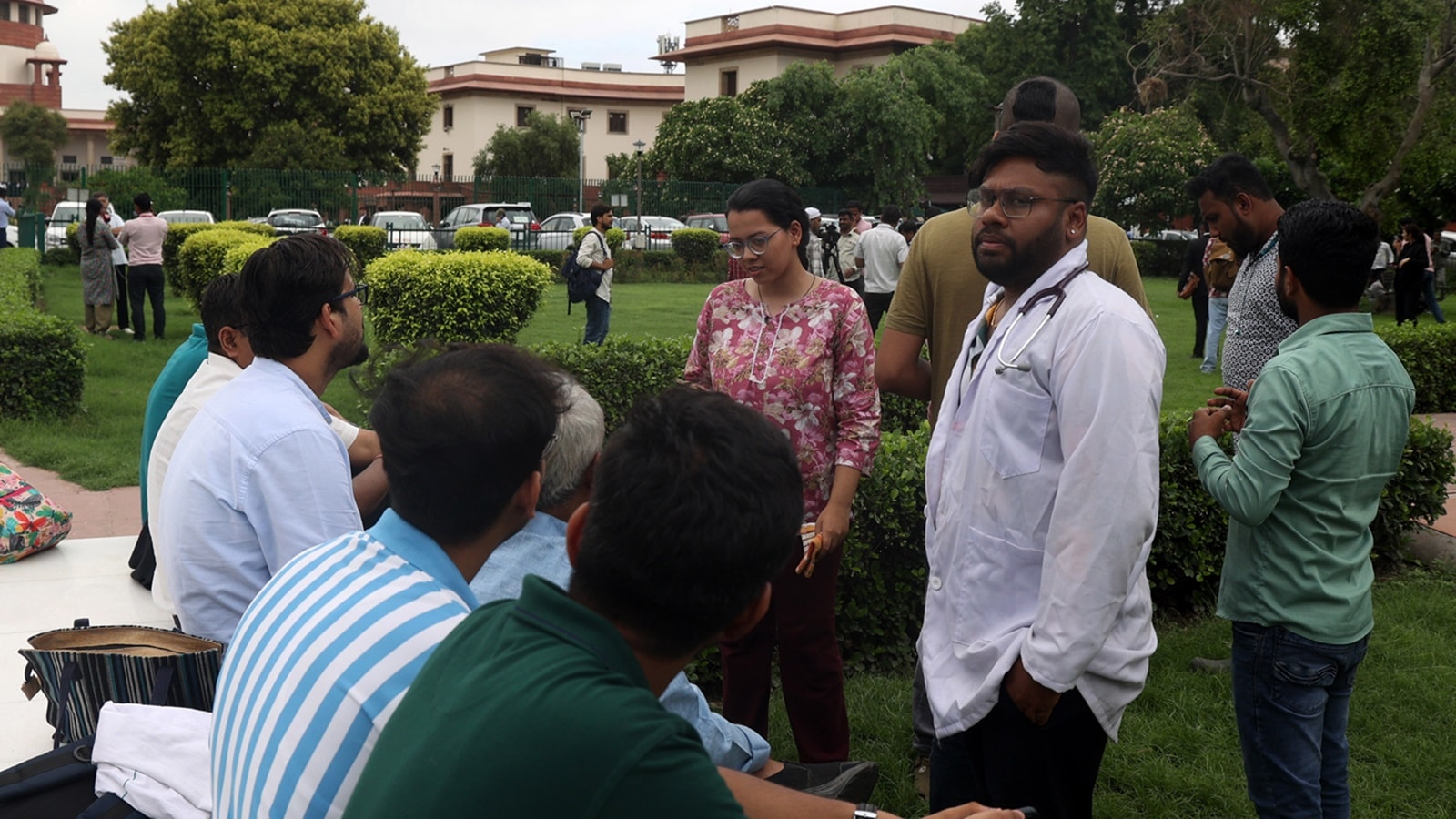
On September 9, three meritorious NEET students with hand impairments were waiting for judgments from the high courts of Delhi and Kerala, hoping to pursue their dream of studying MBBS. The “experts” at Safdarjung Hospital, Delhi and Government Medical College, Thiruvananthapuram, had earlier rejected these candidates without providing any reasoning, once again highlighting the prevalence of ableism in medical boards. Both courts ordered reassessments. The petitioner in Kerala received a favourable judgment, as did one candidate in Delhi. However, the third petitioner, Kabir, who had scored the highest among the three, was found unsuitable by the AIIMS medical board.
In a compassionate and moving judgment, Justice Swarana Kanta Sharma remarked that Kabir’s journey represented the hopes and dreams of countless individuals striving to overcome the odds stacked against them due to their disabilities. His determination to succeed despite physical limitations spoke volumes about the human spirit and resilience. She concluded her ruling by referencing the great Sant Kabir, after whom the petitioner was named, but expressed that her hands were tied due to the expert opinions.
The AIIMS medical board asked Kabir to fill a syringe, which he successfully did. However, their report, as quoted in the judgment, stated: “This candidate will face certain difficulties in the course of pursuing MBBS, such as limitations in acquiring skills including suturing wounds, stopping bleeding, administering injections, bandaging, performing basic life support and resuscitation techniques, conducting normal deliveries, assisting in procedures, etc.” None of these tasks, however, were actually asked of Kabir; the board made assumptions.
Such ableist assumptions are not uncommon, even within the medical fraternity. In 1911, pioneering neurosurgeon Harvey Cushing wrote: “I would like to see the day when a surgeon with no hands would be appointed somewhere, for the operative part is the least important part of the work.” As a doctor and professor in a medical institution, I ask these medical experts if they know surgeons with hand impairments. Let me remind them of history.
During lunch at the annual meeting of the American Society for Surgery of the Hand, Paul Brown noticed that renowned neurosurgeon Sidney Sunderland was missing two-thirds of his right index finger. This, combined with Sunderland’s remarkable surgical skills, inspired Brown to survey surgeons who had lost fingers (ranging from a fingertip to an entire hand) due to trauma. Of the 183 surgeons surveyed, 180 continued to practise surgery, as the Journal of Hand Surgery reported. Most surgical specialities were represented. While three surgeons stopped performing surgery due to their amputation, one even became a surgeon as a result.
Twenty-nine surgeons reported specific professional advantages from their loss. Two orthopedic surgeons, five general surgeons, one vascular surgeon, and two obstetricians noted that the loss of fingers, and the resulting narrowing of the hand, improved their ability to access smaller spaces through shorter incisions. It also enhanced their proficiency in performing rectal, pelvic, and vaginal examinations. Hamilton Bailey, whose surgical textbook remains foundational for medical professionals, had lost the index finger on his non-dominant hand. As these cases demonstrate, very few tasks truly require 10 fingers.
Justice Kanta’s ethical dilemma was shared by the judges in the Neha Pudil v Union of India & Ors (2022) case, where the Delhi High Court ordered the NMC to revisit these ableist guidelines in light of new technological advances within six months. However, the NMC failed to comply. Furthermore, states have not included doctors with disabilities in medical boards, despite a directive from the DGHS in March 2022, issued following a petition by this author.
Chief Justice of India D Y Chandrachud has cited the human rights model of disability in his judgments. Yet, disability rights and competencies — introduced into the medical curriculum through, in part, this author’s efforts — have recently been removed by the NMC. It will be no surprise then that future generations of doctors will be trained under the archaic medical model of disability, reinforcing the same ableism that leads to the exclusion of individuals like Kabir.
Kabir has now written to the CJI, highlighting that a similar candidate in Kerala was deemed eligible. Knowing our history is crucial. The higher courts remain our last hope to correct these injustices.
The writer is the founder, Doctors with Disabilities: Agents of Change and teaches at UCMS. Views are personal



